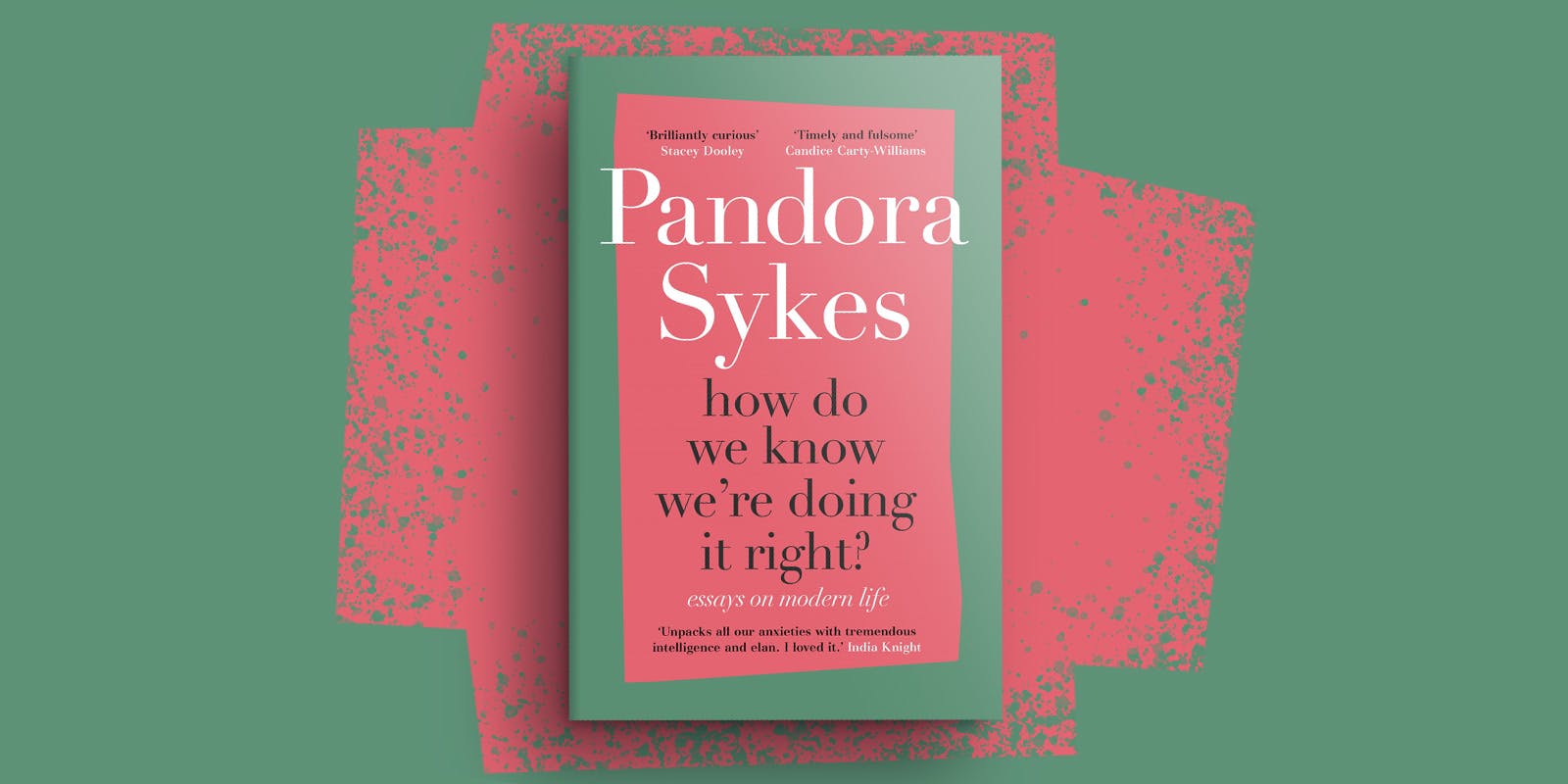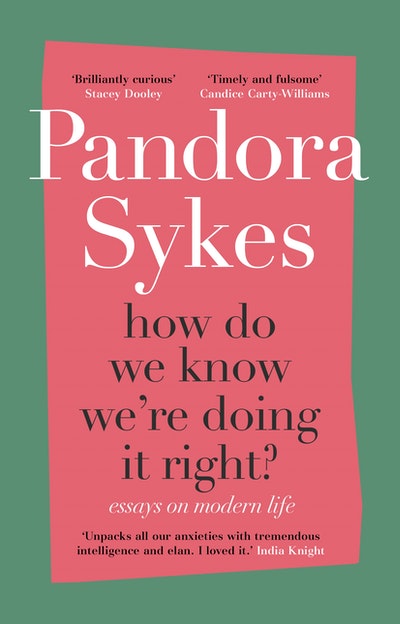The co-host of The High Low and author of How Do We Know We're Doing It Right? discusses modern life, millenials and motherhood.
What surprised you while writing this book?
Oh, so many things! The main thing would probably be that so few of these anxieties or themes are actually new or specific to the millennial generation. Where we worry about drowning in a sea of Whatsapp groups now, people worried about keeping up with postal communication in the 19th century.
What do you hope readers will take away from your essays on modern life?
I hope it may offer some comfort. It isn’t a self-help book; it doesn’t answer all the questions it poses. But I hope it might help some people look at certain things with more clarity; or, at least know that as they wade through the morass of modern life, they are not alone.
What’s one piece of advice you’d offer to millennials ‘navigating our contemporary chaos’?
I am extremely wary of speaking as any kind of authority. But I think, perhaps, it might be to consider than the answers lie inward rather than outward. We look to external validation a lot through social media (even if we don’t realise it) and, thanks to the internet, we are drenched in the lives of others, or the news of others, all the time. Interrogating what we really want – and what we can give – has to come from turning that lense inwards, I think. The writer Nesrine Malik also said something very interesting to me, when I interviewed her – she said that 'gain, involves loss'. Life is not something that can, or should, be 'won' at all times, just like happiness is not a static state that you can fix to a spot.
What’s the strangest thing you came across while researching the book?
In the UK, 75% of mothers are working mothers (compared to 92% of fathers), and yet they spend more time with their children than they did in the 1970s, because parenting has become much more culturally intensive. No wonder we are tired!
Something you learned while creating the book?
That bad news can have a negative effect on us psychologically. I suspected our 24/7 news cycle wasn’t doing great things to our nerves, but the science around it is incredibly interesting. We need to be able to disengage, and I think one way we can do that is if we start committing to reading newspapers on some days, rather than just scrolling the internet – because with a newspaper you can get to the end, shut it, and carry on with your day. With your smartphone, you’re still there scrolling, slack-jawed and haggard, four hours later.
Modern life is full of choices and endless possibilities. Why is this a good thing? And why is this a bad thing?
Choice is not just great – it’s essential. More choice, generally, means more freedom. But in certain areas, choice has addled us as much, if not more, than it has freed us. No-one needs 175 salad dressings in the supermarket: the example given by the psychologist Barry Schwartz, who coined The Paradox of Choice. I would add to that: no-one needs to scroll through 188 pages of black dresses. We are drowning in information, clothing e-tailers, emails and boxsets. In those instances, choice can be both an anxiety-riddled distraction and a bind. On the other hand, to be even able to worry about the lives we are living – the choices we are making – is a luxury. And that’s equally important to hold on to, as you sift through the options. That doesn’t mean it’s always easy, though.
Can you tell us about a book that’s challenged your perception of the world?
Nervous States: How Feeling Took Over The World by William Davies, The Twittering Machine by Richard Seymour, Natural Causes by Barbara Ehrenreich, Hood Feminism by Mikki Kendall… and so many more!
If you could invite five people, living or dead, to a dinner party who would you invite?
Roald Dahl, Bill Gates, Zadie Smith, Sinead Burke, and Michelle Obama.
How do we know we’re doing it right?
The best answer is a question: what might we have got wrong about the right life? Hopefully my book might help you answer that.













